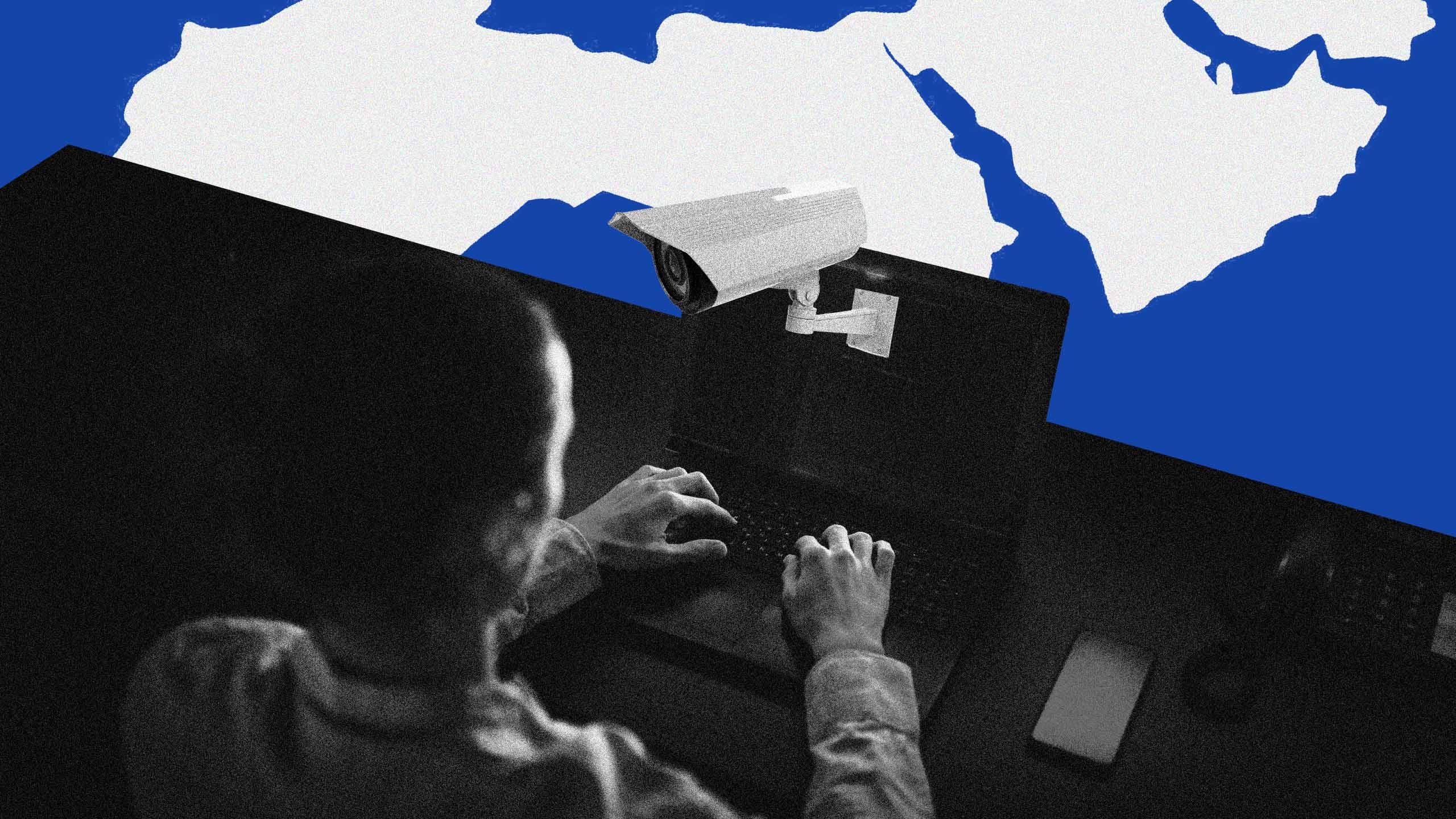Solitary confinement, sexual assault, extortion: these are just some of the things that a new Human Rights Watch (HRW) report found that LGBTQ+ people in the Middle East and North African (MENA) region experienced after authorities and private individuals targeted them online.
The new report, “All this Terror Because of a Photo,” reveals how both security forces and private individuals target LGBTQ+ people in Egypt, Iraq, Jordan, Lebanon and Tunisia through dating apps and social media.
Based on 120 interviews, 90 of which are with LGBTQ+ people who had been detained, the report found that authorities unlawfully searched LGBTQ+ people’s devices to use photos, WhatsApp chats and the download of dating apps like Grindr to justify arresting and abusing them. The report also found that private individuals had impersonated LGBTQ+ people to extort them, leading them to believe they were going on dates before threatening to out them.
Rasha Younes, LGBT senior researcher at HRW, said that hearing about LGBTQ+ people’s experiences in the MENA region was “harrowing.”
“While I was aware of the breadth of digital targeting across the region, I was surprised by the sheer horror of the offline consequences and how they impacted people’s lives for years after the instance of online abuse,” Younes told Xtra over email on Wednesday.
The report explains that LGBTQ+ people in these countries are particularly vulnerable to digital targeting because of homophobic and transphobic laws. Although same-sex intimacy isn’t criminalized in Iraq, Jordan and Egypt, laws dictating proper “morality” or outlawing “debauchery” are often used to arrest LGBTQ+ people. In the 45 arbitrary arrests that HRW documented, authorities searched the LGBTQ+ detainees’ phones. Some of them told HRW that when authorities couldn’t find evidence of same-sex attraction, they would fabricate it, uploading photos and downloading same-sex dating apps to justify detaining them.
These kinds of violations were just the start of the abuse and mistreatment that LGBTQ+ people would face in detention. LGBTQ+ detainees reported being denied access to a lawyer and forced to sign confessions; moreover, while the report notes that the conditions for detention are poor for everybody in these countries, queer and trans people were subjected to uniquely terrible treatment. Some were refused water, food and medical treatment; others were put in solitary confinement, and trans women were held in men’s cells. During a press conference about the report, Younes mentioned a particularly disturbing instance in which a trans woman named Tina was raped more than 100 times during her 290 times in confinement, including 22 times in the first 15 days.
“Once a month, the officers would order food and ask me if I wanted to order anything, but I refused because I was afraid it would have negative repercussions,” Tina told HRW. “I chose starvation over being raped again.”
Government authorities are not the only ones who use LGBTQ+ people’s online presence to terrorize them, however. HRW documented 17 cases of extortion by private individuals who used Grindr, Facebook and Instagram to trick LGBTQ+ people into thinking that they were speaking with another queer person. After talking online for an “extensive period of time,” these individuals would meet with LGBTQ+ people. What seemingly would begin as a date would transform into beatings and threats to out them if they didn’t pay up.
Many LGBTQ+ victims felt like they couldn’t turn to the law for help. Mahdy, a 28-year-old gay man from Cairo, told HRW how he tried to meet with a lawyer, who told him that there would be a case against him for immoral conduct. Mortada, a 21-year-old gay man from Akkar, Lebanon, who had also been extorted, said that he couldn’t call the police “because it would incriminate me.”
The report emphasizes that these arrests, abuses and extortions have had far-reaching consequences beyond when they actually happened. All the LGBTQ+ people HRW interviewed are suffering from mental health issues like PTSD, depression and anxiety. Many of them stopped using social media; others stopped meeting with their LGBTQ+ activist groups. Some are afraid of going outside altogether, and have contemplated suicide. Ammar, a 31-year-old gay man from Jordan who had been interrogated by Jordanian authorities in 2017, said that his life had been upended for years afterward.
“I was very scared and anxious for many years to come. I’d avoid state agents and would often think twice about going to public spaces. I did not enjoy any outing. I stopped talking to all my activist friends, and our group and solidarity networks broke off and vanished,” Ammar said. “There’s fear, and a heaviness in my heart toward digital spaces that is more rampant than that related to physical ones.”
The report ends with a number of recommendations for both digital platforms and the governments of these countries, calling for social media to centre user safety in the MENA region and the repeal of laws that target LGBTQ+ people. Younes advised that people everywhere should pressure social media companies to make their platforms safer for LGBTQ+ people.
“Everyone, whoever and wherever they are, could be impacted by digital targeting,” Younes told Xtra. “People should use their platforms to raise awareness around the consequences of digital targeting and pressure social media companies to improve the digital experiences of those vulnerable to online abuse, including LGBT people in the MENA region.”


 Why you can trust Xtra
Why you can trust Xtra


